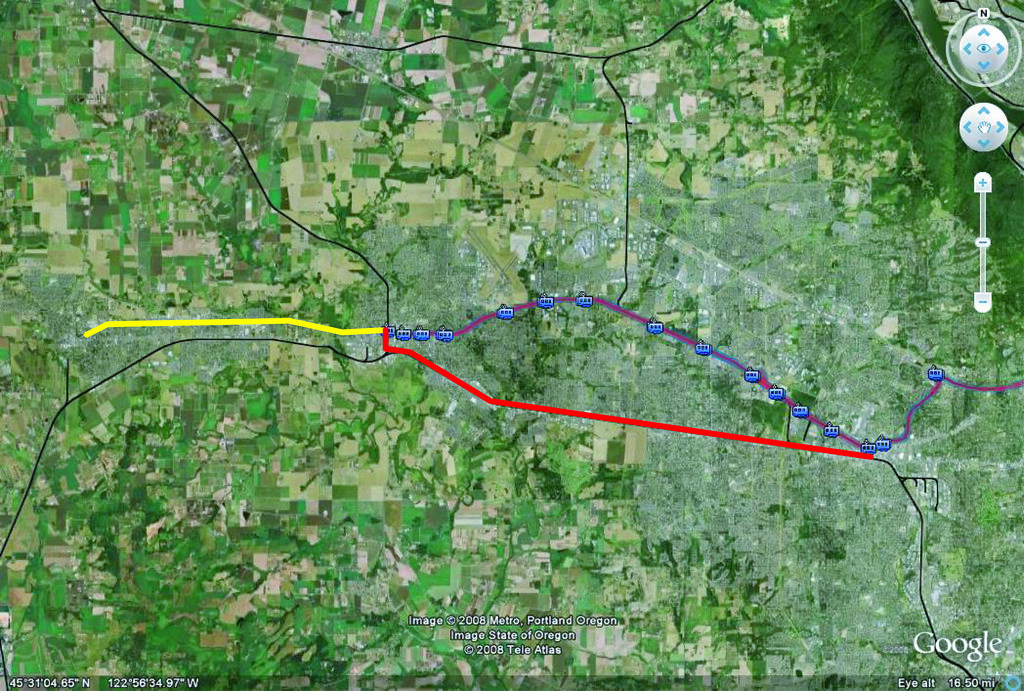~~~
Where will the next commuter line be?
Fred Hansen: “This is the first state’s first commuter rail project. I don’t think it’ll be it’s last.”~~~
54% of Cincinnati jobs (City of, not region) are in the core. That is some pretty good job density, excellent for transit.
~~~
In DC, 43% of folks in the core walk or take transit. Would biking get them over 50%? In transit zones in DC, in and outside of the core, the number of people who walk bike or take transit was 42% in 2000.
~~~
Personally I think asking bikers to pay a user fee on roads that are generally paid for out of local sales, income, and property taxes is silly. A lot of the times bikes aren't even allowed on freeways which are paid for with gas taxes that people think pays for streets, but doesn't. This is the same as asking urban dwellers who do own a car but don't use freeways or state highways to subsidize the folks who do even more. Sure they get indirect goods movement benefits but they could also pay indirectly for that with a little higher price at the store, much like people pay for free parking at grocery stores through more expensive goods.
~~~
The Aces train we talked about last week is on the go.
~~~
Mad press for Streetsblog. An article in Planetizen about discusses how they are trying to change the urban discussion. And the founder Mark Gorton got some good press in Wired. For those annoyed with Muni, Gorton is looking for the solution!
Portland, Oregon has already used his open-source software to plan its bus routes. San Francisco, whose MUNI bus system is a frequent target of criticism, could be next to get the treatment. Gorton says he's in talks with the city to supply transit routing software for MUNI that will do a much better job of keeping track of where people are going and figuring out how best to get them there. San Francisco "overpaid greatly" for a badly-supported proprietary closed-source system that barely works, according to Gorton, putting the city under the thumb of a private company that provides sub-par support.Good luck with that. We hope it works out.
"They're frustrated and thinking about replacing it completely, and see the value of open-source because then they won't have any of these support problems," he said. "And they won't be constantly at the mercy of the private companies that have these little mini-monopolies."

